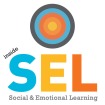
This month in SEL: the House Appropriations Committee votes to fund $260MM for SEL, new research outlines methods to better prepare teachers to tackle social-emotional learning, a podcast episode covers the origins and evolution of SEL, and more!
Thank you for reading This Month in SEL. This newsletter is free, so feel free to share it. If you want to receive our monthly e-newsletter version of this, click here to subscribe.
Understanding Student’s Social-Emotional Data
Transforming Education and Policy Analysis for California Education partnered to analyze data from over 500,000 students across 8 districts in California. This brief provides benchmarking data that is designed to allow practitioners to compare their aggregated data across grade levels and subgroups, better supporting their efforts to make inferences about their students’ social-emotional competencies and mindset development.
House Appropriations Committee Votes To Support $260 Million for SEL
The House Appropriations Committee has voted to support an unprecedented $260 million for social-emotional learning as part of the 2020 education funding bill. The funds would support research, teacher professional development, mental health professionals in schools, and community schools.
New Research on Preparing Teachers to Support SEL
A series of case studies published by the Learning Policy Institute detail efforts made in two different institutions — San Jose State University and Lakewood Elementary School — to upgrade preservice and in-service training programs for educators to better support good teaching practices and implement SEL in schools.
Tips for Talking to Parents About Students’ Social-Emotional Learning
Findings from a recent study suggest that education jargon doesn’t translate well for parents; they prefer the term “life skills” over social-emotional learning. Research also suggests that many parents claim ownership over their child’s social-emotional development, though they expect for this development to be supported in school. Parents may feel uncomfortable with certain terminology and hesitant to have their students participate in SEL programs and curriculum based on factors such as cultural influence, individual parenting style, and a lack of understanding.
This article covers four different strategies that educators, administrators and counselors can use in order to better communicate with parents regarding their child’s social-emotional development.
PODCAST: Why Social-Emotional Learning is Suddenly in the Spotlight
A recent episode of the EdSurge On Air Podcast included a conversation with guest Christina Cipriano, the director of research at the Yale Center for Emotional Intelligence. In the interview, Cipriano succinctly defines social-emotional learning, explains the origins of the topic, and shares some examples of how schools are beginning to implement SEL programs.
Other Headlines:
- Reducing Behavioral Incidents in Schools: What Can SEL Tell Us? (via Panorama Education)
- Teens Want Schools to Nurture Their Social and Emotional Development (via ASCD)
- The State of SEL in Massachusetts (via Inside SEL)
- Project-based learning boosts student engagement (via Hechinger Report)
- Finding Resilience and Grit as an Educator (via ASCD)
- Four Ways Schools Can Support the Whole Child (via Greater Good Magazine)
- The chronic effect stress has on children at school — and why policymakers should care (via The Washington Post)
- Collaborating to keep SEL on course (via Kappan Online)
- Carol Dweck on Building Growth Mindset in the Classroom (via EdWeek)
This Month in SEL | May, 2019

